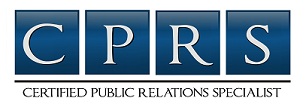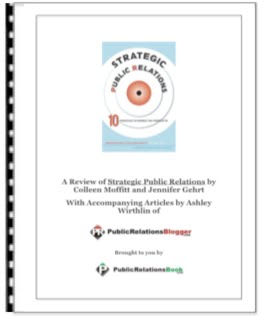________________________________________________________________________

Public Relations | Crisis Management Planning
________________________________________

When your company experiences a crisis there needs to be a plan that can easily be implemented. Planning is crucial for getting things right. After the planning process it really comes down to trial and error. Once implemented you can learn what went right and what went wrong, and can adjust your response accordingly when the next crisis arises. You can also look at companies who have gone through a similar crisis and learn from their mistakes, avoiding making them yourself.
Some types of crises include (but are most definitely not limited to):
- Natural Disasters
- Economic Disasters
- Managerial Mistakes
- Deception
- Technological Issues
- Slander / Rumors
- Legal Issues
- Errors in Judgement
Many crises can be found in each type, such as a bacterial outbreak in your product, outside tampering with your product, exposure to animals or insects, ethical issues within the firmsuch as stealing or dishonesty, or a breach in company security.
There are some things to consider when responding to a crisis and when creating a plan. While there is no set of rules for crisis management, the following might help you to create your own set and perhaps help you better respond to the crisis at hand:
Keep in mind that responsibility is a key component of any company's success.
An example of great crisis management can be seen in the mid 90s recall of Odwalla juices. There was a strain of E-Coli found in their apple and carrot juices which were present in a handful of juices. The source of the strain was unknown, and despite not knowing the source, Odwalla recalled all juices that contained the apple or orange juice. This cost millions of dollars but showed a great amount of responsibility and may have avoided future lawsuits and irreparable brand damage. Odwalla also changed how they did things, implementing a pasteurization of their juices to ensure that the E-Coli would not return. They created a website, made TV appearances, and paid for medical bills, showing consumers that they were doing everything they could.
A poor example of taking responsibility can be seen in the 1989 Exxon oil spill in the Prince William Sound off the coast of Alaska. Though some say the amount spilled was underreported, there was an estimate of ~10 - 40 million gallons spilled that day, with estimates of hundreds of thousands of wild life killed, including bald eagles, sea otters, and harbor seals, along with hundreds of thousands of dead seabirds and billions of eggs of salmon and herring. Exxon avoided responsibility, even at times putting the blame on the coast guard. Today the sound and the residents affected by the spill are still feeling the repercussions of interrupted salmon runs, the loss of the herring in the local ecosystem, and the some thousand gallons of oil still buried in the beaches. (Wikipedia)
In the midst of a crisis is not the time to avoid responsibility. Be honest and don't push responsibility on others if you were involved. Doing so can save the reputation and credibility of the company, as well as show the community you care. As a corporation you have responsibilities to the community and neighbors, and if something goes wrong, it is your duty to remedy the damage for the well being of your company and your consumers.
Give yourself time to gather evidence and consider the facts.
There was a crisis at Pepsi Co. when rumors started that syringes were being found in Diet Pepsi cans. Pepsi checked their facilities and came to the conclusion that there was no way any syringes could have been added to their cans while in their plants and factories.
Pepsi told the Public Relations Society of America that being quick with actions is important, but so is being accurate. Had Pepsi done a recall, they could have been out millions of dollars and made the situation worse. Additionally, it may have cost them their image; seeing Pepsi recall cans may have encouraged the rumor and consumers to think of the product in a negative light. Instead, Pepsi gathered the facts and decided against a recall. Though negative reports and consumer opinions spread after the decision was made, the rumor was proven to be just that, a rumor and a hoax.
Furthermore, timing is of the essence.
If your company comes across a product that needs to be recalled, timing is a critical aspect of responding to the crisis properly. A crisis management plan, or a crisis communication plan, can dramatically curb the damage done to your company, brand, or image. As with the Pepsi example, had they acted irrationally and put a recall into effect things may have gotten worse. For Odwalla, a swift recall was needed.
------------------------------------------------------------------------------------------------------------
Once your plan is established and you have decided which action to take, it is important to put together materials that will be needed. For example, your employees need to be informed, as well as the public. Prepare statements and scripts so that everyone knows what is being released and what the facts are. Create press releases to inform the public, and be available for questioning; don't avoid the situation and make sure you are truthful and up-front about the circumstances.
Additionally, after the crisis has occurred there needs to be more planning for future crises and corrective action ought to be taken to ensure that a similar crisis does not occur. In order to diffuse a crisis, action must be taken before it occurs. Keep your company informed, congruent in the information provided, and honest.
Subscribe to:
Post Comments (Atom)






Comments (0)
Post a Comment